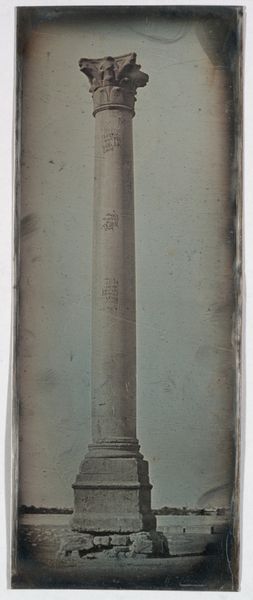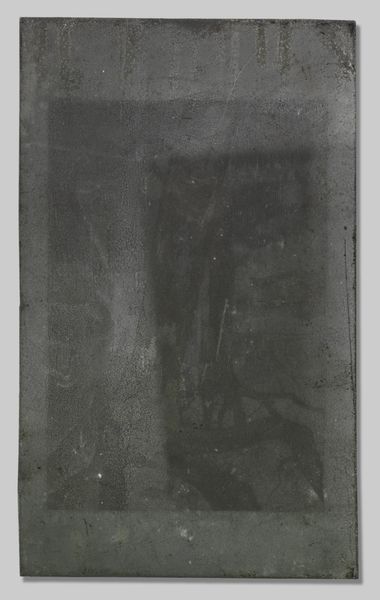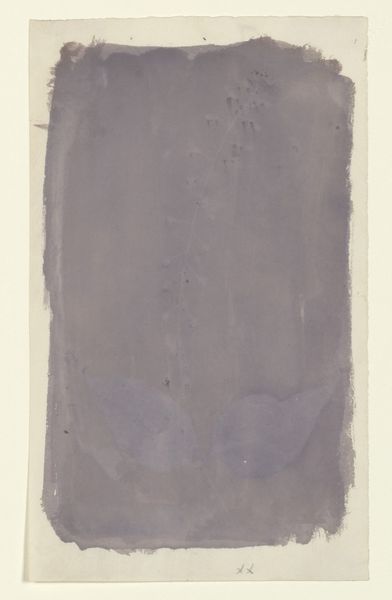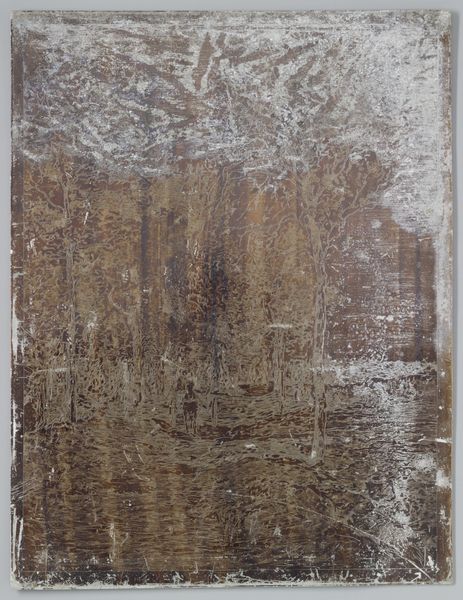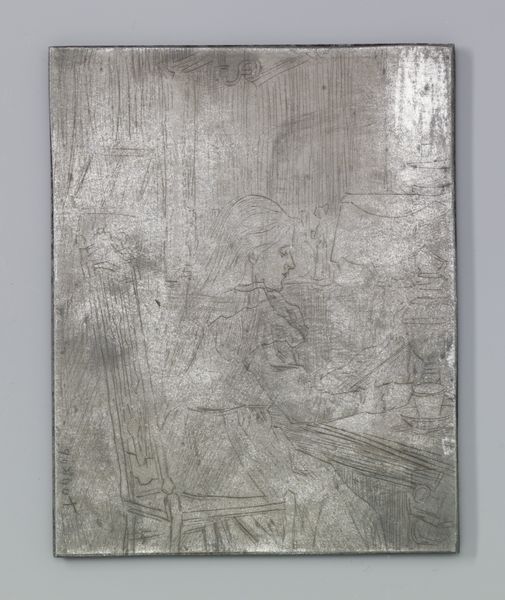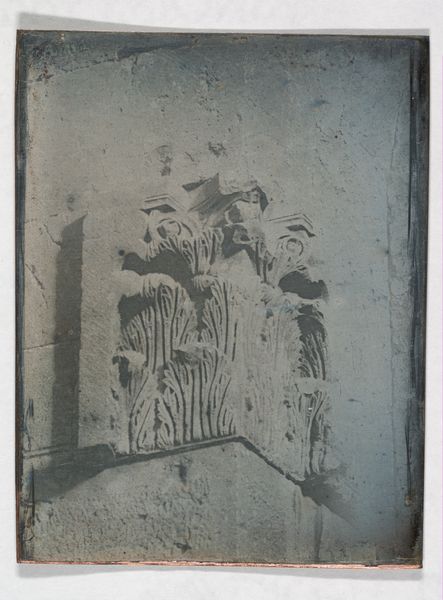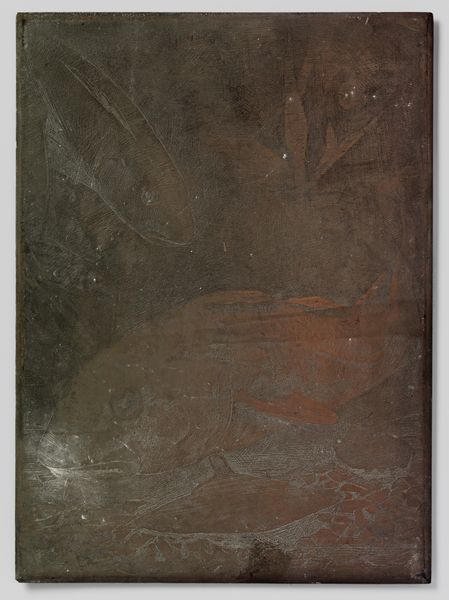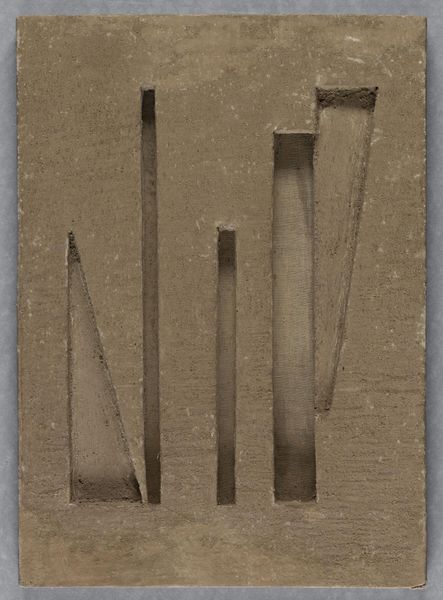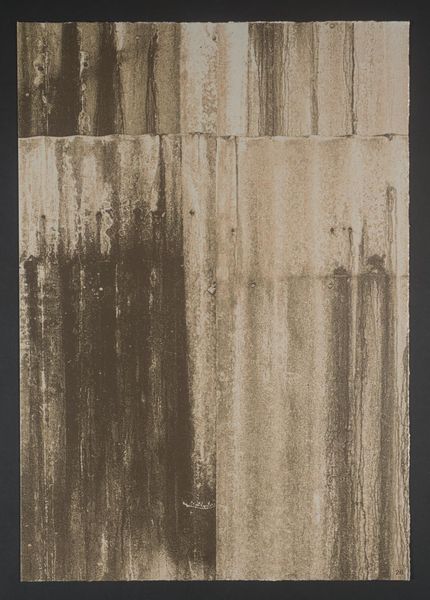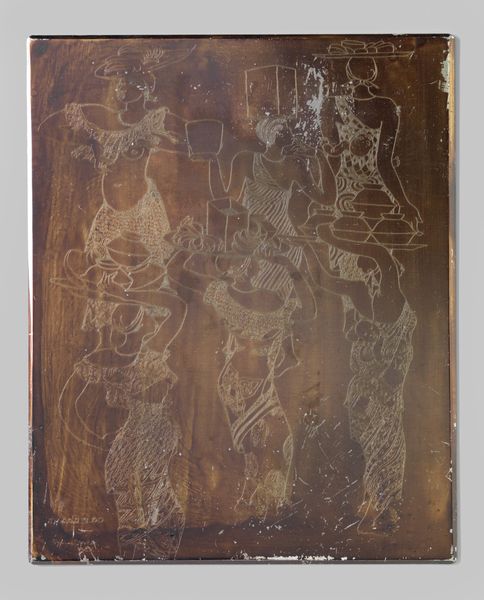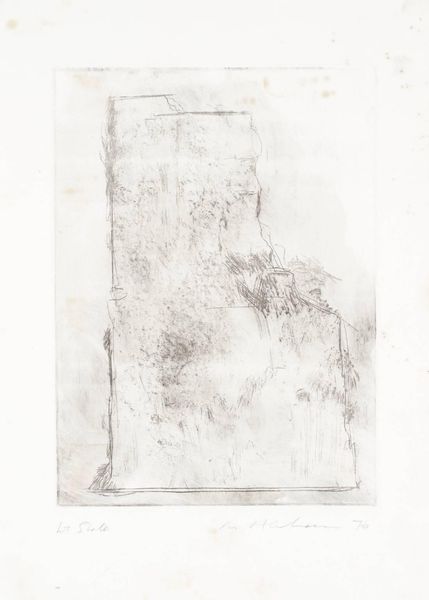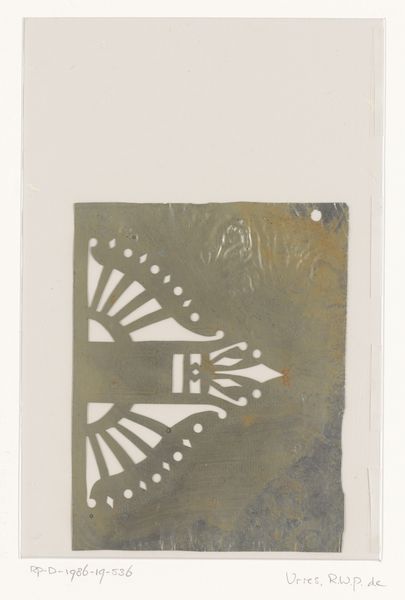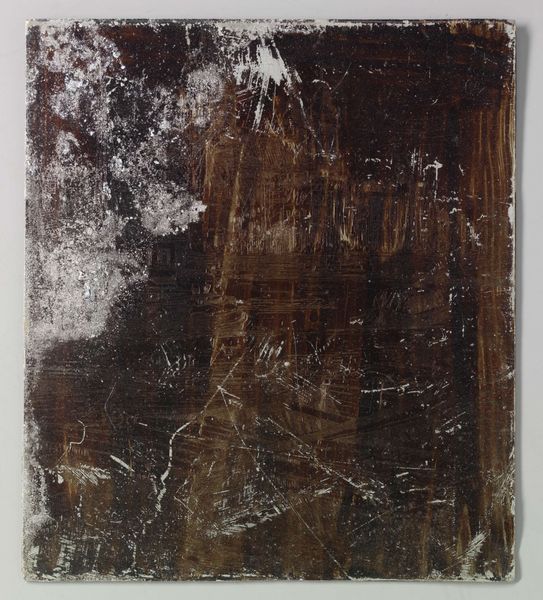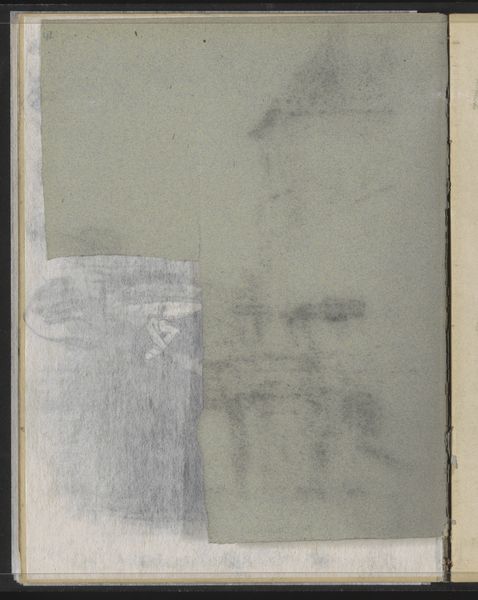
Temple of Bacchus, Athens (53. Athènes. 1842. Temple de Bacchus) 1842
0:00
0:00
daguerreotype, photography, architecture
#
water colours
#
greek-and-roman-art
#
landscape
#
daguerreotype
#
photography
#
ancient-mediterranean
#
column
#
watercolour illustration
#
watercolor
#
architecture
Dimensions: Image: 9 7/16 × 3 3/4 in. (24 × 9.5 cm)
Copyright: Public Domain
Editor: So, here we have Joseph-Philibert Girault de Prangey's "Temple of Bacchus, Athens" from 1842, a daguerreotype. The image is quite faded, almost ghostly, showing two columns reaching up against a muted background. What visual language speaks to you most profoundly in this work? Curator: The temple columns themselves act as potent symbols, particularly within the context of their dedication to Bacchus, the god of wine, fertility, and theatre. What feelings or ideas arise when you consider the choice to depict this temple? Editor: Well, knowing it’s dedicated to Bacchus makes me think of revelry and chaos, contrasting with the rather somber, almost clinical presentation in this daguerreotype. It’s like the memory of a wild party, seen through a faded photograph. Curator: Precisely. And consider the endurance of the column as a symbol of civilization. It represents support, structure, and even aspiration. Do you find it ironic that the god of drunkenness would be associated with architecture that represents stability? Editor: It does seem a little contradictory! Maybe it speaks to the duality of life – the balance between order and chaos, restraint and indulgence? Curator: Indeed. Perhaps Prangey wanted to immortalize not just a temple, but the enduring power of symbolic tension itself. Editor: I didn’t consider that before. Seeing it as an interplay of opposing ideas makes this daguerreotype so much richer. Thank you! Curator: My pleasure. May the study of cultural memory always spark your curiosity.
Comments
No comments
Be the first to comment and join the conversation on the ultimate creative platform.
